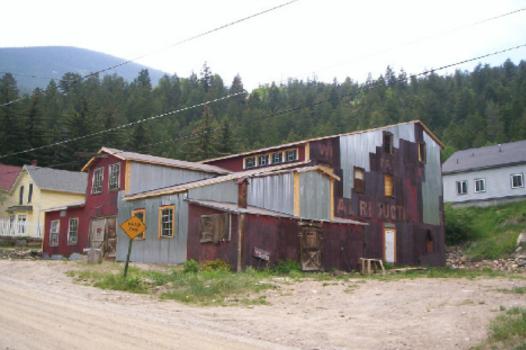The Centennial Mill

Located on 3rd Street just below Guanella Pass Road, The Centennial Mill is the last surviving mill structure in Georgetown. At the peak of its mining industry, Georgetown was a highly industrial community. With the regrowth of trees and the loss of most of the industrial structures in town, today, Georgetown is frequently only perceived through its architecture as a bucolic Victorian-era mountain community. Its “hammers and rocks” image is relegated to outlying mining areas, when in fact mining was as much a part of daily community life in town as it was on the neighboring mountainsides.
Historically, the mines of the Centennial Group were the setting for some of the earliest and most lucrative mineral finds in the district. Many mines and mills were opened and then closed periodically over the decades due to the ever-booming and busting economic cycles in Colorado. Consequently, the Centennial Mill represents two periods of mining. Formerly in a different location, it was known as the Griffith Mill, which was a late 19th-century structure.
The Western States Mining company that bought out the Centennial group of mines purchased the Griffith Mill, disassembled it—a common practice at the time due to the high value of timber and mining equipment—and reassembled the Centennial Mill at its current location in 1929. The new site was optimal as it was in close proximity to the Colorado Central Railroad, which made the transfer of ore to the Denver smelters highly cost-effective for the Centennial Group. The mill utilized a then-revolutionary system known as flotation—patented by Mrs. Carrie Everson in 1885. Two mills operated during the depression in Georgetown using the flotation system, and it was considered state-of-the-art technology in 1929.
Centennial Mill is the last example of Georgetown’s prominence in the development of mining technologies in the late 19th and early 20th centuries. In 2004, the mill was acquired by Historic Georgetown, Inc. thanks to the generosity of many private donors, the Colorado State Historical Fund, the 1772 Foundation, and the Challenge Cost Share Program through the National Park Service. Currently, the Centennial Mill is not open for tours.
